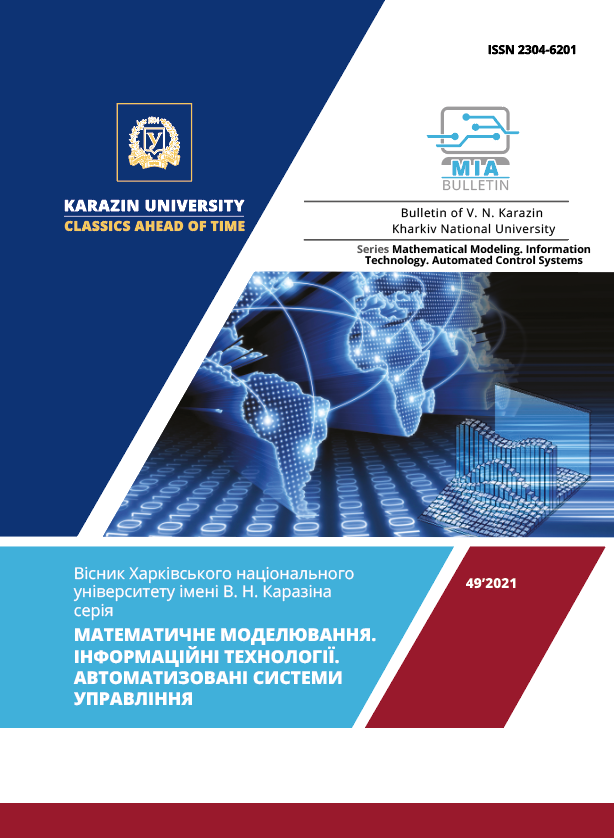Development of workflows based on ontologies
Abstract
Modern society is impossible without the digital economy, which increasingly provides a significant amount of services, guaranteeing technological efficiency and innovation, constantly updating technologies and services, adapting them to the needs of the end user, reconfiguring complex software systems. All of this requires constant workflows reengineering in subject areas, and, accordingly, an increase in the level of their automation. At the same time, there are currently no efficient solutions for automated workflows reengineering. This article presents an approach to the computational workflows construction, which is based on well-defined ontological models of the domain, an ontological model of a set of rules for building connections between functional services, and an ontological model of the workflows themselves that are dynamically generated. The research of this approach has been carried out and the prototype for the automated computational workflows construction has been developed. The usage of the proposed approach will increase the level of automation of the computational workflows’ construction, generate workflows "on the fly" based on a previously prepared pool of functional services and restrictions imposed by the ontology domain.
Downloads
References
/References
L. Globa, M. Popova, N. Yushko, “Improved Approach to Quality Control of Telecommunication Service Providers”, in Proc. 8th International Conference on Applied Innovations in IT, (ICAIIT), Keten, Germany, 2020, pp. 29-34, URL: https://opendata.uni-halle.de/handle/1981185920/32929
A. Luntovskyy, L. Globa, “Performance, Reliability and Scalability for IoT”, in Proc. 2019 International Conference on Information and Digital Technologies (IDT), Zilina, Slovakia, 2019, рр.316-322, DOI: 10.1109/DT.2019.8813679, URL:https://ieeexplore.ieee.org/document/8813679
Workflow Automation. [Online]. Available: https://web.archive.org/web/20130907014418/http:/nocsmart.com/index.php?option=com_content&view=article&id=17&Itemid=135.
R. Novogrudska. “Information technology for creating and maintaining engineering knowledge portals”: PhD theis, Igor Sikorsky Kyiv Polytechnic Institute, Kiev, 2015. [in Ukrainian]
E. Börger. “Approaches to modeling business processes: a critical analysis of BPMN, workflow patterns and YAWL”, in Software and Systems Modeling, Börger E., Eds. Springer-Verlag 2011, pp. 305–318. DOI 10.1007/s10270-011-0214-z
M. Adams, A.H.M. ter Hofstede, N. Russell. Modern Business Process Automation: YAWL and its Support Environment. Berlin, Germany: Springer-Verlag, 2010.
L. Globa, T. Kot, A. Schill, A. Strunk. “Method of IBIS design and workflow realization”, "Polish J. of Environ. Stud ", Vol. 18, no. 4a, pp. 35-38, 2009.
L. Globa, T. Kot, A. Schill, “Applying business process modeling method when Telecommunication services development”, in Proc. 21st International Crimean Conference "Microwave and Telecommunication Technology" (CriMiCo'2011), Sevastopol, Crimea, Ukraine, 2011, pp. 457 - 458. ISBN 978-966-335-352-4 URL: https://ieeexplore.ieee.org/document/6069007
Kot, T., Reverchuk, A., Globa, L., Schill, A., “A novel approach to increase efficiency of OSS/BSS workflow planning and design”, in Proc. 15th International Conference Business Information Systems, Vilnius; Lithuania, 2012, pp. 142-152.
R. Abdukalykov, I. Hussain, M. Kassab, O. Ormandjieva, “Quantifying the Impact of Different Non-functional Requirements and Problem Domains on Software Effort Estimation”, in Proc. 2011 Ninth International Conference on Software Engineering Research, Management and Applications, Baltimore, MD, USA, 2011. DOI: 10.1109/SERA.2011.45. URL: https://ieeexplore.ieee.org/document/6065634
V. Gaievyi, L. Globa, “Analysis of architectures for building computational workflows in a distributed environment” , Bulletin of V.N. Karazin Kharkiv National University, series «Mathematical modeling. Information technology. Automated systems», Vol. 46, pp.7-16, 2020. [in Russian].
L. Globa, R. Novogrudska, A. Koval, V. Senchenko, Ontology for Application Development, Ciza Thomas, Eds. IntechOpen, 2018, pp. 29 – 53, DOI: 10.5772/intechopen.74042, 2018, URL: https://www.intechopen.com/books/ontology-in-information-science/ontology-for-application-development
Business process execution language for Web services. [Online]. Available: http://docs.oasis-open.org/wsbpel/2.0/wsbpel-v2.0.pdf.
Workflow Patterns: веб-сайт. URL: http://www.workflowpatterns.com.
Globa L., Popova M., Yushko N. Improved Approach to Quality Control of Telecommunication Service Providers. Materials of the 8th International Conference on Applied Innovations in IT, (ICAIIT), March 2020. Keten, Germany: 2020. P. 29–34. URL: https://opendata.uni-halle.de/handle/1981185920/32929
Luntovskyy A., Globa L. Performance, Reliability and Scalability for IoT. 2019 International Conference on Information and Digital Technologies (IDT), 25-27 June 2019. Zilina, Slovakia: IEEE Digital Library, 2019. Т.1. P. 316–322. DOI: 10.1109/DT.2019.8813679 URL: https://ieeexplore.ieee.org/document/8813679
Workflow Automation. Веб-сайт. URL: https://web.archive.org/web/20130907014418/http:/nocsmart.com/index.php?option=com_content&view=article&id=17&Itemid=135.
Новогрудська Р.Л. Інформаційна технологія створення та підтримки порталів інженерних знань : автореф. дис. на здобуття наук. ступеня канд. техн. наук : 05.13.06. Київ, 2015. 20 c.
Börger E. Approaches to modeling business processes: a critical analysis of BPMN, workflow patterns and YAWL. In Software and Systems Modeling . Springer, 2011. P. 305–318.
Modern Business Process Automation: YAWL and its Support Environment / Adams M., ter Hofstede A.H.M., Russell N. Berlin, Germany: Springer-Verlag, 2010. 616 p.
Globa L., Kot T., Schill A., Strunk A. Method of IBIS design and workflow realization. "Polish J. of Environ. Stud " 2009. Vol. 18, № 4a. P. 35-38.
Globa L., Kot T., Schill A. Applying business process modeling method when Telecommunication services development. СВЧ-техника и телекоммуникационные технологии: 2011 год: материалы 121-й Международной Крымской конференции (КрыМиКо), 2011 г. Севастополь, Крым, Украина: IEEE Catalog Number СП 1788, 2011. Т.1. С. 457 – 458. ISBN 978-966-335-352-4
Kot T., Reverchuk A., Globa L., Schill A. (2012): A novel approach to increase efficiency of OSS/BSS workflow planning and design. Materials of the 15th International Conference Business Information Systems, 21–23 May 2012. Vilnius; Lithuania: Springer, 2012. Vol. 117. P. 142-152. DOI: 10.1007/978-3-642-30359-3_13
Abdukalykov R., Hussain I., Kassab M., Ormandjieva O. Quantifying the Impact of Different Non-functional Requirements and Problem Domains on Software Effort Estimation. 2011. Ninth International Conference on Software Engineering Research, Management and Applications: materials of the 2011 Ninth International Conference, 10-12 Aug. 2011, Baltimore, MD, USA, 2011. DOI: 10.1109/SERA.2011.45. URL: https://ieeexplore.ieee.org/document/6065634
Гаевой В.В., Глоба Л.С. Анализ архитектур для построения вычислительных рабочих процессов в распределённой среде . Вісник Харківського національного університету імені В.Н. Каразіна, серія «Математичне моделювання. Інформаційні технології. Автоматизовані системи управління». 2020 Вип. 46. С. 7-16.
Globa L., Novogrudska R., Koval A., Senchenko V. Ontology for Application Development. Ontology in Information Science / за ред. Ciza Thomas. IntechOpen, 2018. P. 29 – 53 DOI: 10.5772/intechopen.74042 URL: https://www.intechopen.com/books/ontology-in-information-science/ontology-for-application-development
Business process execution language for Web services: веб-сайт. URL: http://docs.oasis-open.org/wsbpel/2.0/wsbpel-v2.0.pdf.




